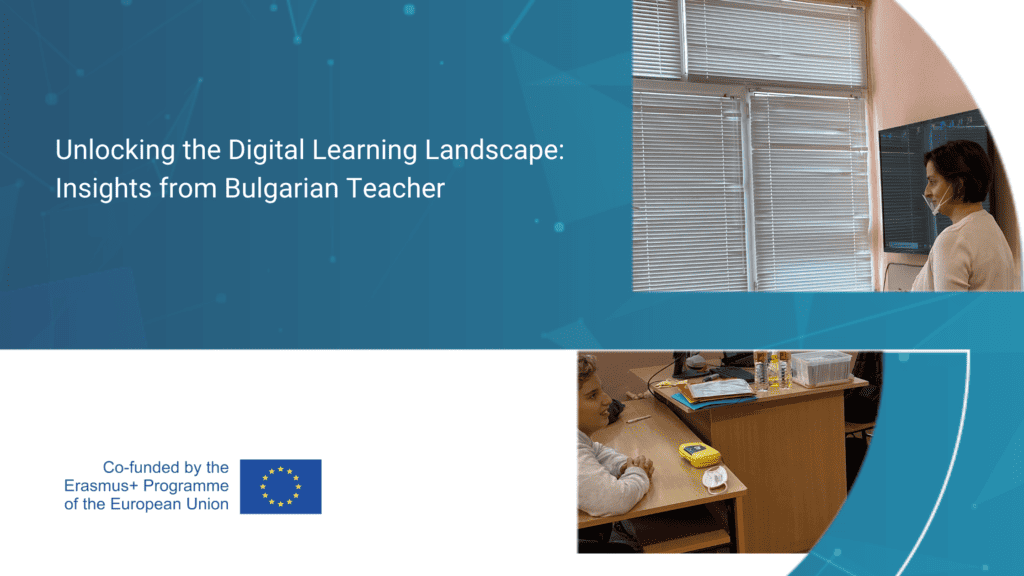
Unlocking the Digital Learning Landscape: Insights from Bulgarian Teachers
Digital integration in education is an ever-evolving spectrum, and a recent survey of 36 teachers and educators in Bulgaria sheds light on the diverse landscape of teaching practices. The findings reveal a range of perspectives and challenges that educators face in the digital realm, offering valuable insights into the state of digital learning in the country.
Digital Integration Varies Widely
Among the surveyed educators, approximately 44.4% reported a limited digital presence in their teaching processes, with only a quarter of their instruction conducted in a digital environment. In contrast, 36% embraced a 50% digital component in their teaching. Notably, some teachers reported extreme approaches, with 0% digital integration indicating a fully traditional approach, while others leaned heavily on digital tools, with 75% digital integration.
These findings underscore the adaptability and diversity within the teaching profession regarding digital adoption. It’s clear that educators in Bulgaria are navigating a wide range of approaches to incorporate digital technologies into their instructional methods.
Challenges in Assessing Learning Outcomes
Evaluating learning outcomes in a digital environment presents its own set of challenges. While some educators (3%) emphasized the distinction between face-to-face digital integration and distance learning, approximately 42% pointed out that outcomes varied by age groups. However, 19% perceived outcomes as similar to traditional in-person training, while 28% noted lower outcomes, particularly in the range of 30% to 50% lower.
This complexity highlights the challenge of assessing learning outcomes in digital education, where factors like age, teaching methods, and digital tools all play a role in determining success.
The Difficulty of Teaching Digitally
When asked about their views on the difficulty of teaching in a digital environment, educators’ opinions were divided. An equal percentage of participants (28% each) found it moderately challenging or quite easy, reflecting the diverse experiences and comfort levels among teachers. The remaining 44% had mixed views, with some finding it highly challenging and others moderately manageable.
Multifaceted Challenges in Digital Learning
The survey delved into the challenges educators face in digital learning through both closed and open-ended questions. The most commonly reported challenges included:
- Lack of contact and emotional connection with learners
- Lack of learner engagement
- Technical issues
Each of these challenges was cited by 25% of participants. Other challenges included evaluating training results, providing opportunities for students to practice acquired skills, and discipline issues with younger students.
Additionally, respondents highlighted various issues faced when teaching digitally, including poor infrastructure, difficulty building relationships with students they haven’t met in person, technical problems, lack of parental support, and challenges related to student engagement and motivation, such as cheating on tests and tasks or using the computer for other entertainment. These responses underscore the multifaceted nature of challenges encountered in digital teaching, encompassing technical, pedagogical, and social aspects.
Perceptions of Digital Teaching
Despite the challenges, the majority of respondents (86%) perceive digital teaching as an opportunity for better learner outcomes, especially when well-organized, technically secure, and accompanied by live training or active learner engagement. A smaller portion (14%) are more skeptical, with 8% stating that it’s not an opportunity at all.
Benefits of Learning in a Digital Environment
Participants in the survey highlighted various advantages of learning in a digital environment, including:
- Time-saving
- Access to a wide variety of resources and tools
- Flexibility in when and where learning can occur
- Increased student interest
- Ability to cater to individual needs and differentiated learning
These benefits contribute to a more comfortable and uninterrupted learning experience, making digital education an attractive option for both educators and students.
Preferred Tools for Online Learning
Considering the technical aspects, the survey investigated the preferred tools for online lessons. Google Classroom and Google Meet emerged as the most common choices, selected by 69% of participants. Microsoft Teams and Zoom were also popular, chosen by 55.5% and 29% of respondents, respectively. Other tools mentioned included Microsoft 365, Skype, BlackBoard Learn, and Seesaw.
Conclusion: Navigating the Digital Frontier
The study provides valuable insights into digital learning among Bulgarian teachers, offering a comprehensive view of the current situation, opportunities, and challenges. To harness the full potential of digital education, educators and policymakers should focus on:
- Enhancing digital integration
- Evaluating learning outcomes effectively
- Addressing the multifaceted challenges faced in digital teaching
Furthermore, emphasis should be placed on well-structured, engaging, and interactive digital learning experiences to leverage the benefits of this educational approach. As Bulgaria’s educators continue to navigate the digital frontier, these insights will play a crucial role in shaping the future of education in the country.